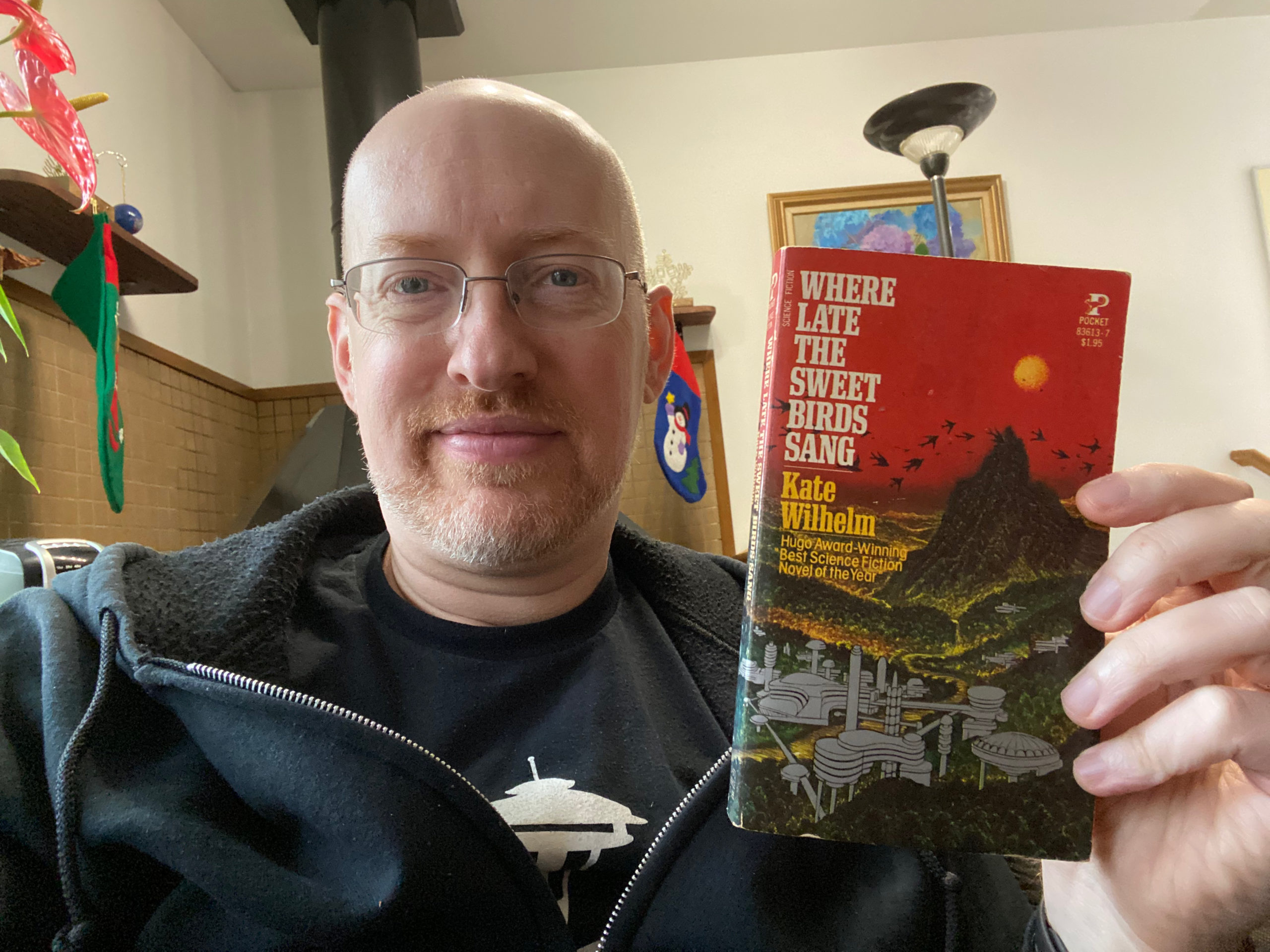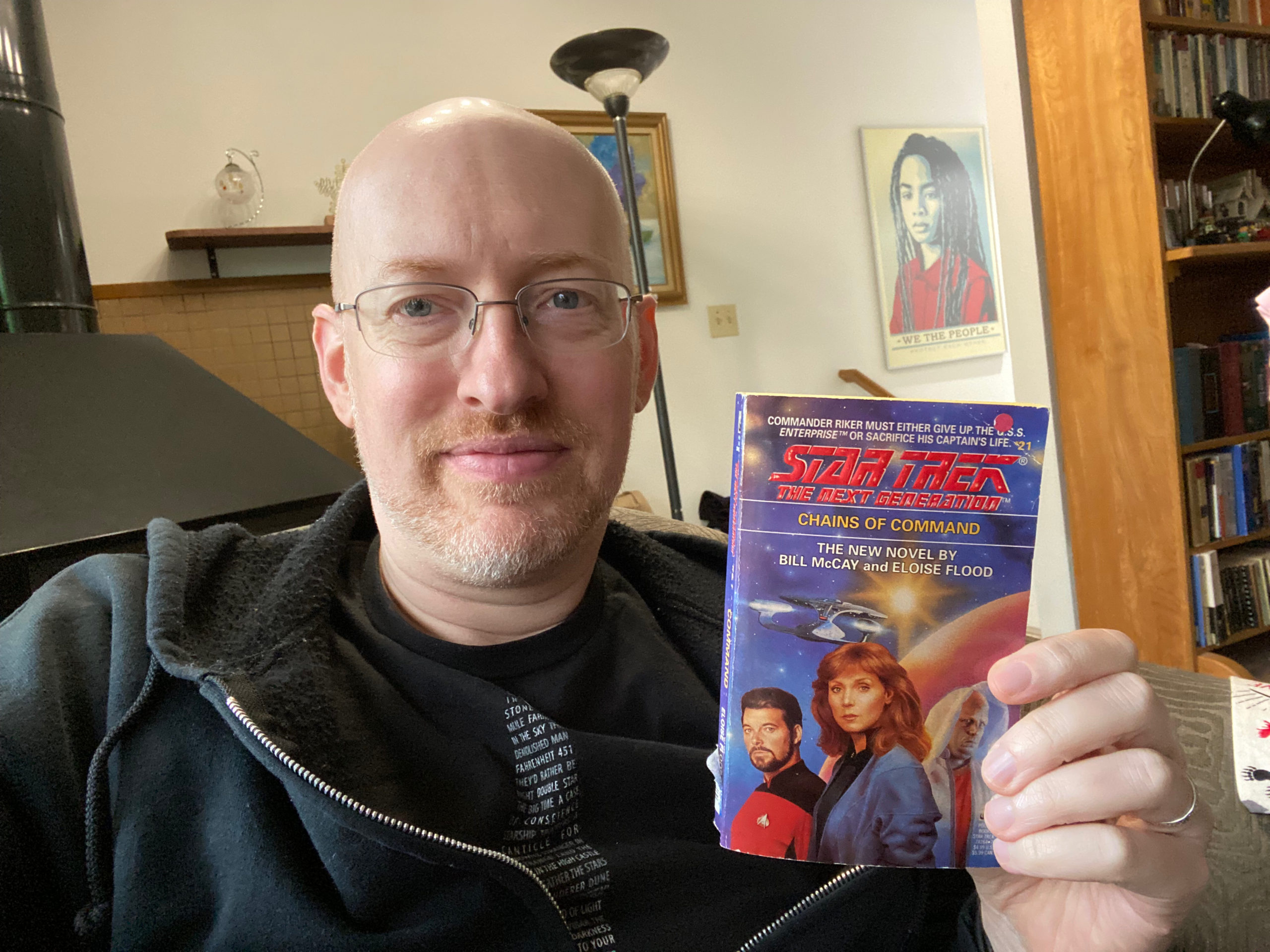I am pleased to see that we have differences. May we together become greater than the sum of both of us.
— Surak, in “The Savage Curtain“, summarizing the philosophy of IDIC
Enthusiastically Ambiverted Hopepunk
I am pleased to see that we have differences. May we together become greater than the sum of both of us.
— Surak, in “The Savage Curtain“, summarizing the philosophy of IDIC
Got myself a little “congrats on the new job and your first actual office” present to go on a bookshelf or my desk (y’know, once we’re moved in and I actually have furniture…right now, it’s just a bare office). 🖖
I’ve been eyeballing Eaglemoss’s Star Trek model ships line for a long time. I don’t have the funds or space to do the “collect the whole set” subscription, so I’m glad they also sell them individually so I could get this.
“NCC-1701. No bloody A, B, C, or D.”
The Micropedia of Microaggressions – the first encyclopedia of microaggressions.: The Micropedia aims to collect everyday microaggressions and highlight their harmful impact through source-based definitions and real-world examples.
Good update to a classic track: It’s Raining Them (hallelujah!).
When one of the most effective and frightening villains of 1980s-era Trek is a collective without individuals, it’s not surprising that an inability to look beyond the individual to act in the interests of the common good is our biggest real-world barrier to dealing with Covid.
From the New York Times: Vaccine Hesitancy Is About Trust and Class:
…people who reject vaccines are not necessarily less scientifically literate or less well-informed than those who don’t. Instead, hesitancy reflects a transformation of our core beliefs about what we owe one another.
Over the past four decades, governments have slashed budgets and privatized basic services. This has two important consequences for public health. First, people are unlikely to trust institutions that do little for them. And second, public health is no longer viewed as a collective endeavor, based on the principle of social solidarity and mutual obligation. People are conditioned to believe they’re on their own and responsible only for themselves. That means an important source of vaccine hesitancy is the erosion of the idea of a common good.
Americans began thinking about health care decisions this way only recently; during the 1950s polio campaigns, for example, most people saw vaccination as a civic duty. But as the public purse shrunk in the 1980s, politicians insisted that it’s no longer the government’s job to ensure people’s well-being; instead, Americans were to be responsible only for themselves and their own bodies. Entire industries, such as self-help and health foods, have sprung up on the principle that the key to good health lies in individuals making the right choices.
Friendly, foul-mouthed crow befriends entire Oregon elementary school before state police are called in: The bird could say, “What’s up?” and “I’m fine” and “a lot of swear words.”
Really interesting list from Politico of 17 pandemic innovations that are here to stay:
Amid all the death and heartbreak, Covid-19 also hit fast-forward on the future.
For the past year, POLITICO has been chronicling these changes, from cities to states to the federal government, as part of our Recovery Lab project. One thing we’ve noticed is that many of these pandemic innovations, while birthed in crisis and adopted temporarily, increasingly look like they are here to stay.
Most of these, I think, are pretty good, and any downsides I think can be adapted or worked around as we move forward. The big trick will be holding onto the most beneficial aspects, especially those that benefit marginalized communities but may not be as immediately noticeably beneficial for the majority.
📚 51/2021: Where Late the Sweet Birds Sang by Kate Wilhelm ⭐️⭐️⭐️⭐️ 1977 Hugo Best Novel

📚 50/2021: Chains of Command by Bill McCay and Eloise Flood ⭐️⭐️⭐️ 🖖🏻
